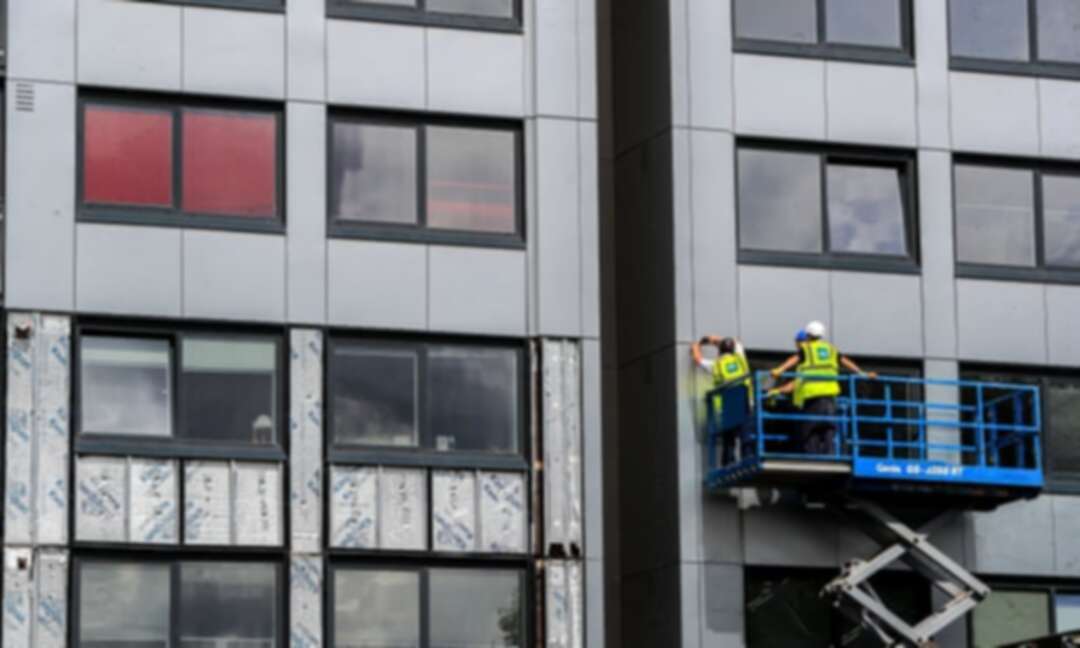-
Vote to protect leaseholders from cladding costs fails despite Tory rebellion

Government defeats amendment aiming to stop fire safety costs being passed on to leaseholders, but Lords vote means new Commons showdown
Hundreds of thousands of leaseholders living in unsellable and potentially dangerous high-rise homes will continue to face fire safety bills of up to £100,000 each after MPs again voted against banning building owners from passing on remediation costs.
Despite a Conservative backbench rebellion of 31 MPs including the former party leader Iain Duncan Smith, the Commons voted 340 to 225 on Tuesday against an amendment to the fire safety bill to protect leaseholders from costs to make their homes safe in the wake of the Grenfell Tower disaster. The total bill for leaseholders could exceed £12bn, according to property experts.
A further Commons showdown was then teed up as peers on Tuesday evening approved a new amendment to protect leaseholders, meaning the bill will return before MPs on Wednesday.
Freehold owners have been holding leaseholders responsible for the cost of fixing dangerous cladding and other faults. Labour estimates the crisis has lefts 1.3m flats unmortgageable. The Bank of England has been examining lenders’ exposure to blocks that have fire safety concerns to determine whether the building safety crisis affects their stability. It currently thinks banks can absorb the risk.
However, the housing minister, Christopher Pincher, warned that could delay the bill’s introduction for another year – five years after the Grenfell disaster claimed 72 lives.
The bill is also supposed to boost building safety by demanding fire risk assessments to external walls and enable enforcement action against safety failures.
Pincher criticised attempts to protect leaseholders from costs as too open-ended and said they could leave government vulnerable to legal challenges by property developers and owners.
Speaking for Labour, the shadow minister for policing and the fire service, Sarah Jones, compared the government’s failure to protect homeowners to the row over the redecoration of the prime minister’s Downing Street flat.
She asked: “Does this government only care about the donors who keep the prime minister in fancy furniture so the prime minister can spend £60,000 on curtains in No 10 while there are nurses and key workers out there facing £60,000 bills for cladding and no wealthy Tory donors to bail them out?”
The government has promised £5bn to replace combustible cladding, but only on buildings over 18 metres in height, and the money does not cover other fire safety defects.
That has left those leaseholders who live in shorter blocks with dangerous cladding and those who have missing fire breaks in wall systems or defective fire doors with unsellable homes and huge bills. The government has estimated the cost to leaseholders of the legislation could be up to £75,000 each.
The vote came despite polling of MPs by YouGov that found three-quarters of MPs, including two-thirds of Tories, believe the government should pay the costs of all building safety work upfront, and then claim it back later from those responsible – such as manufacturers and private developers.
The building safety crisis has also hit social landlords. Twelve of the biggest not-for-profit housing associations have already set aside £2.9bn – largely from social housing rents – to make their buildings safe, according to research by the National Housing Federation. It said they have had to cut plans for thousands of new social homes as a result.
source: Robert Booth
Levant
You May Also Like
Popular Posts
Caricature
BENEFIT Sponsors BuildHer...
- April 23, 2025
BENEFIT, the Kingdom’s innovator and leading company in Fintech and electronic financial transactions service, has sponsored the BuildHer CityHack 2025 Hackathon, a two-day event spearheaded by the College of Engineering and Technology at the Royal University for Women (RUW).
Aimed at secondary school students, the event brought together a distinguished group of academic professionals and technology experts to mentor and inspire young participants.
More than 100 high school students from across the Kingdom of Bahrain took part in the hackathon, which featured an intensive programme of training workshops and hands-on sessions. These activities were tailored to enhance participants’ critical thinking, collaborative problem-solving, and team-building capabilities, while also encouraging the development of practical and sustainable solutions to contemporary challenges using modern technological tools.
BENEFIT’s Chief Executive Mr. Abdulwahed AlJanahi, commented: “Our support for this educational hackathon reflects our long-term strategic vision to nurture the talents of emerging national youth and empower the next generation of accomplished female leaders in technology. By fostering creativity and innovation, we aim to contribute meaningfully to Bahrain’s comprehensive development goals and align with the aspirations outlined in the Kingdom’s Vision 2030—an ambition in which BENEFIT plays a central role.”
Professor Riyadh Yousif Hamzah, President of the Royal University for Women, commented: “This initiative reflects our commitment to advancing women in STEM fields. We're cultivating a generation of creative, solution-driven female leaders who will drive national development. Our partnership with BENEFIT exemplifies the powerful synergy between academia and private sector in supporting educational innovation.”
Hanan Abdulla Hasan, Senior Manager, PR & Communication at BENEFIT, said: “We are honoured to collaborate with RUW in supporting this remarkable technology-focused event. It highlights our commitment to social responsibility, and our ongoing efforts to enhance the digital and innovation capabilities of young Bahraini women and foster their ability to harness technological tools in the service of a smarter, more sustainable future.”
For his part, Dr. Humam ElAgha, Acting Dean of the College of Engineering and Technology at the University, said: “BuildHer CityHack 2025 embodies our hands-on approach to education. By tackling real-world problems through creative thinking and sustainable solutions, we're preparing women to thrive in the knowledge economy – a cornerstone of the University's vision.”
opinion
Report
ads
Newsletter
Subscribe to our mailing list to get the new updates!






















